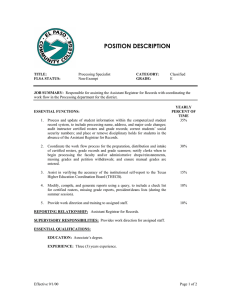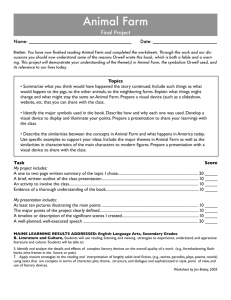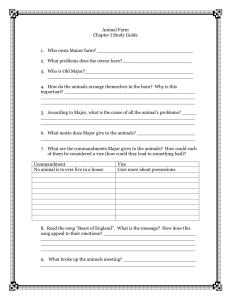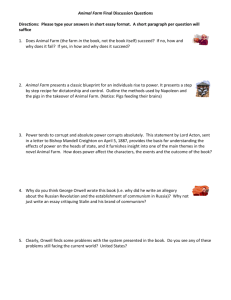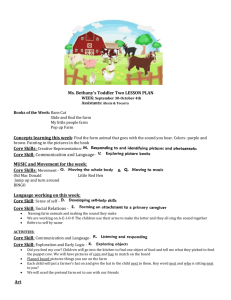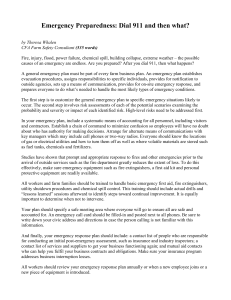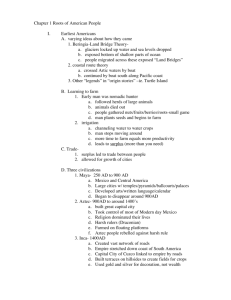Staff planning
advertisement
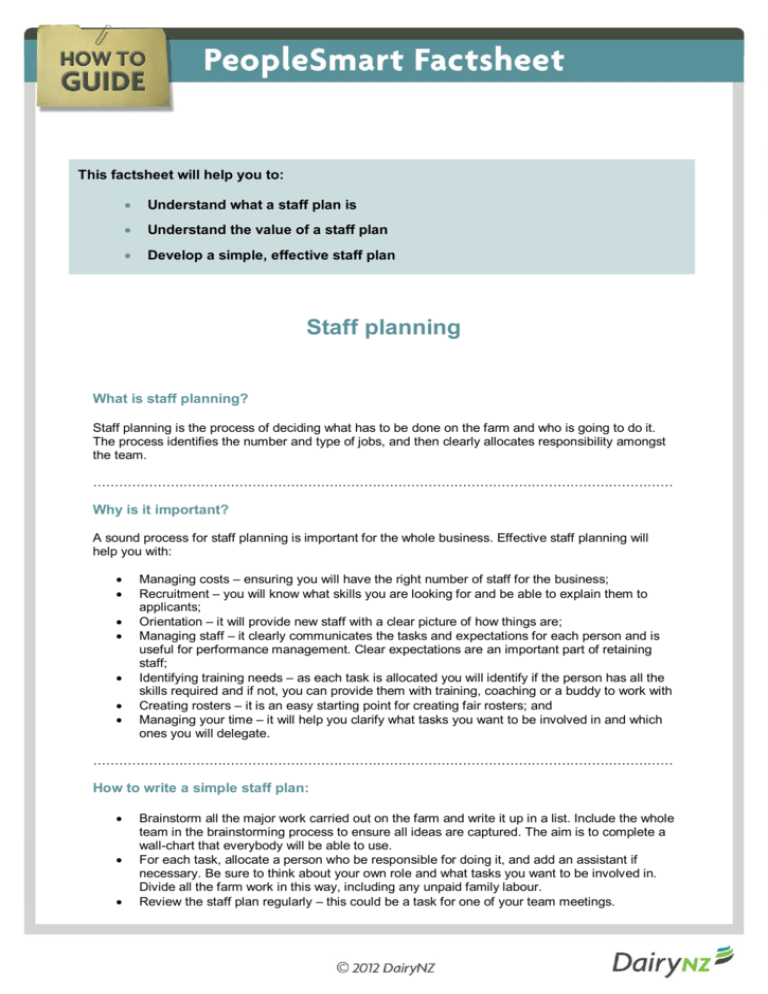
This factsheet will help you to: Understand what a staff plan is Understand the value of a staff plan Develop a simple, effective staff plan Staff planning What is staff planning? Staff planning is the process of deciding what has to be done on the farm and who is going to do it. The process identifies the number and type of jobs, and then clearly allocates responsibility amongst the team. ……………………………………………………………………………………………………………………… Why is it important? A sound process for staff planning is important for the whole business. Effective staff planning will help you with: Managing costs – ensuring you will have the right number of staff for the business; Recruitment – you will know what skills you are looking for and be able to explain them to applicants; Orientation – it will provide new staff with a clear picture of how things are; Managing staff – it clearly communicates the tasks and expectations for each person and is useful for performance management. Clear expectations are an important part of retaining staff; Identifying training needs – as each task is allocated you will identify if the person has all the skills required and if not, you can provide them with training, coaching or a buddy to work with Creating rosters – it is an easy starting point for creating fair rosters; and Managing your time – it will help you clarify what tasks you want to be involved in and which ones you will delegate. ……………………………………………………………………………………………………………………… How to write a simple staff plan: Brainstorm all the major work carried out on the farm and write it up in a list. Include the whole team in the brainstorming process to ensure all ideas are captured. The aim is to complete a wall-chart that everybody will be able to use. For each task, allocate a person who be responsible for doing it, and add an assistant if necessary. Be sure to think about your own role and what tasks you want to be involved in. Divide all the farm work in this way, including any unpaid family labour. Review the staff plan regularly – this could be a task for one of your team meetings. Be sure the responsibilities being assigned to each individual role are realistic. Existing employees must have the skills necessary to complete the task or be buddied up as an assistant to learn the necessary skills. Be careful to ensure a realistic mix of responsibilities and ensure the job can be done in a reasonable number of hours. Initially it may not be possible to assign all vacant responsibility areas to staff because of lack of skill or experience. This means the manager will have to do them until the appropriate skills can be hired or trained.

